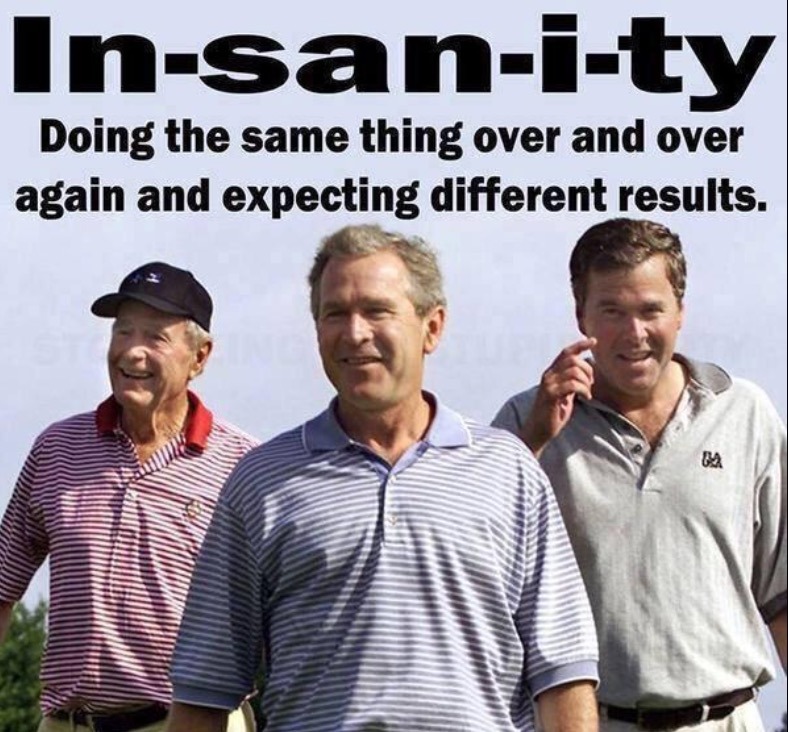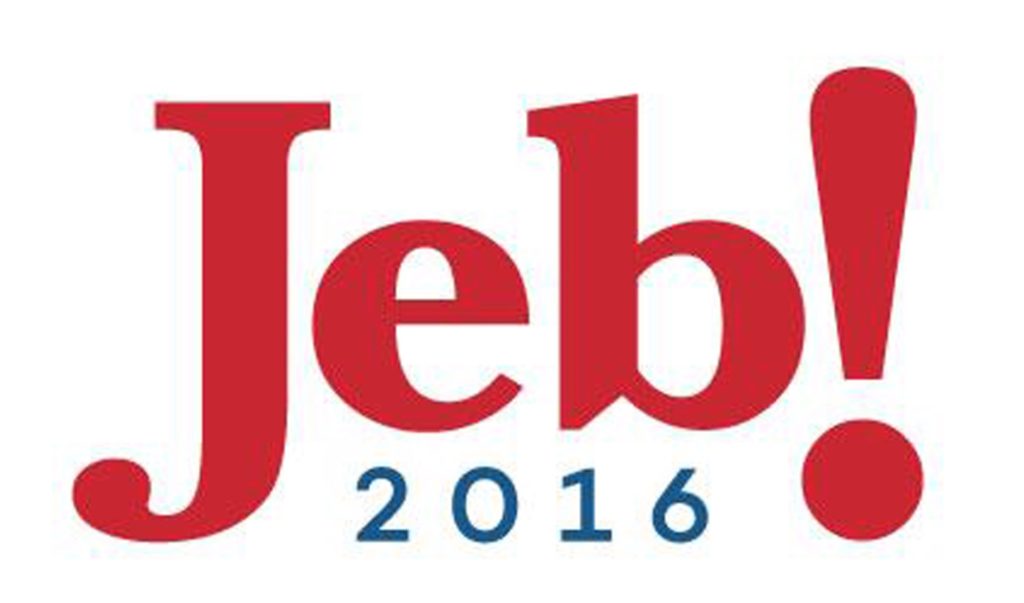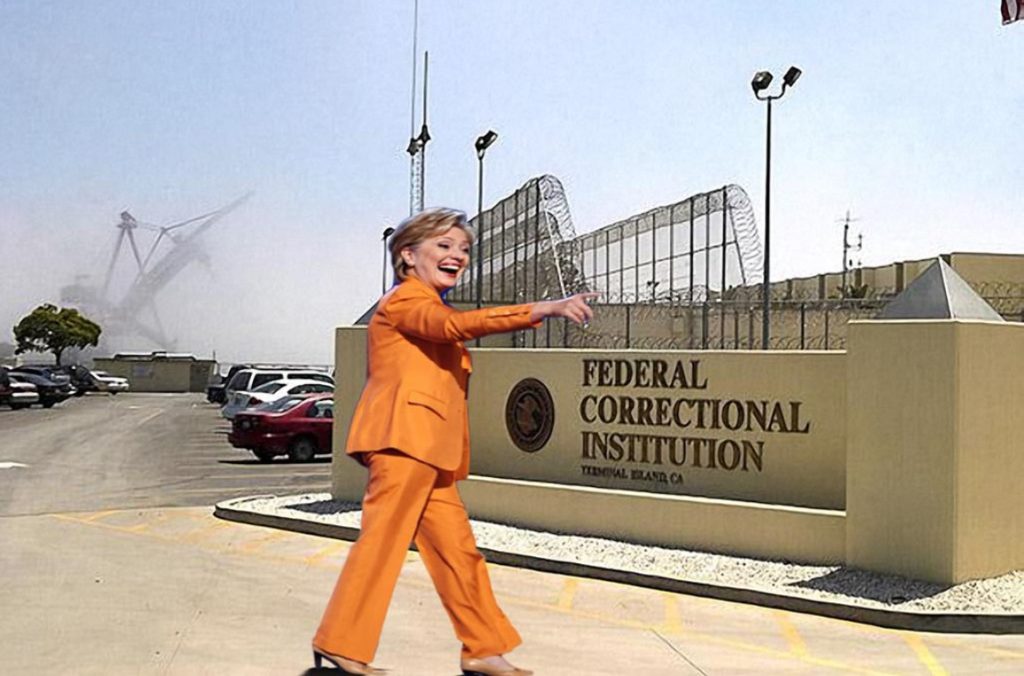Re: The GOP Clown Car

Michael Krieger
At this point, it almost feels like kicking someone while he’s down. Jeb Bush can’t even stand up to Donald Trump, let alone his own growing series of scandals.
In the latest revelation from David Sirota and team at International Business Daily, we learn that:
For Florida taxpayers, the move by the administration of then-Gov. Jeb Bush to forge a relationship with Lehman Brothers would ultimately prove disastrous. Transactions in 2005 and 2006 put the Wall Street investment bank in charge of some $250 million worth of pension funds for Florida cops, teachers and firefighters. Lehman would capture more than $5 million in fees on these deals, while gaining additional contracts to manage another $1.2 billion of Florida’s money. Then, in the fall of 2008, Lehman collapsed into bankruptcy, leaving Florida facing up to $1 billion in losses.
But for Jeb Bush personally, his enduring relationship with Lehman would prove lucrative. In 2007, just as he left office, Bush secured a job as a Lehman consultant for $1.3 million a year, Bloomberg reported.
Next time, please just ride off into the sunset and paint landscapes with your brother.
Weeks after Bush took the Lehman job, the Florida State Board of Administration (SBA) — a three-member body that makes investment decisions about state pension funds and whose ranks had recently included one Jeb Bush — gave Lehman additional business: SBA purchased $842 million worth of separate investments in Lehman’s mortgage-backed securities. Over the course of one year from June 2007 to June 2008, the SBA would shift an additional $420 million of pension money into the same fund in which the state had begun investing under Bush.
In short, during Bush’s first year working for Lehman, his former colleagues in Tallahassee, the state capital, moved vast sums of Florida pension money into the doomed Wall Street investment bank, even as warnings about its financial troubles began to emerge.
“This is a breathtaking conflict of interest going on here,” said Craig Holman, governmental ethics lobbyist with Public Citizen, a good-government group. “This cost Florida very dearly, and it enriched Jeb Bush.”
Jeff Connaughton, author of the book “The Payoff: Why Wall Street Always Wins,” said the transactions illustrate a larger culture that dominates the politics of finance.
Florida originally began investing money in Lehman in 2005, while Bush was the highest profile member of the SBA, which oversees the $150 billion pension fund. The Bush-led SBA that year committed $176 million to Lehman; in 2006, as Florida moved another $87 million into the Lehman investment, the firm hired Jeb Bush’s cousin, George Herbert Walker, to run the firm’s investment management division.
The next year, Lehman offered the outgoing Florida governor the consulting job. Bush had worked briefly at a Texas-based bank after college, but he lacked significant Wall Street experience.
Fortunately for Jeb, being a crony doesn’t take any real skill.


Michael Krieger
At this point, it almost feels like kicking someone while he’s down. Jeb Bush can’t even stand up to Donald Trump, let alone his own growing series of scandals.
In the latest revelation from David Sirota and team at International Business Daily, we learn that:
For Florida taxpayers, the move by the administration of then-Gov. Jeb Bush to forge a relationship with Lehman Brothers would ultimately prove disastrous. Transactions in 2005 and 2006 put the Wall Street investment bank in charge of some $250 million worth of pension funds for Florida cops, teachers and firefighters. Lehman would capture more than $5 million in fees on these deals, while gaining additional contracts to manage another $1.2 billion of Florida’s money. Then, in the fall of 2008, Lehman collapsed into bankruptcy, leaving Florida facing up to $1 billion in losses.
But for Jeb Bush personally, his enduring relationship with Lehman would prove lucrative. In 2007, just as he left office, Bush secured a job as a Lehman consultant for $1.3 million a year, Bloomberg reported.
Next time, please just ride off into the sunset and paint landscapes with your brother.
Weeks after Bush took the Lehman job, the Florida State Board of Administration (SBA) — a three-member body that makes investment decisions about state pension funds and whose ranks had recently included one Jeb Bush — gave Lehman additional business: SBA purchased $842 million worth of separate investments in Lehman’s mortgage-backed securities. Over the course of one year from June 2007 to June 2008, the SBA would shift an additional $420 million of pension money into the same fund in which the state had begun investing under Bush.
In short, during Bush’s first year working for Lehman, his former colleagues in Tallahassee, the state capital, moved vast sums of Florida pension money into the doomed Wall Street investment bank, even as warnings about its financial troubles began to emerge.
“This is a breathtaking conflict of interest going on here,” said Craig Holman, governmental ethics lobbyist with Public Citizen, a good-government group. “This cost Florida very dearly, and it enriched Jeb Bush.”
Jeff Connaughton, author of the book “The Payoff: Why Wall Street Always Wins,” said the transactions illustrate a larger culture that dominates the politics of finance.
Florida originally began investing money in Lehman in 2005, while Bush was the highest profile member of the SBA, which oversees the $150 billion pension fund. The Bush-led SBA that year committed $176 million to Lehman; in 2006, as Florida moved another $87 million into the Lehman investment, the firm hired Jeb Bush’s cousin, George Herbert Walker, to run the firm’s investment management division.
The next year, Lehman offered the outgoing Florida governor the consulting job. Bush had worked briefly at a Texas-based bank after college, but he lacked significant Wall Street experience.
Fortunately for Jeb, being a crony doesn’t take any real skill.
Most of the investment losses that hit Florida starting in July 2007 were tied to the Lehman mortgage-backed securities bought the year Bush began his employment at the firm.









Comment